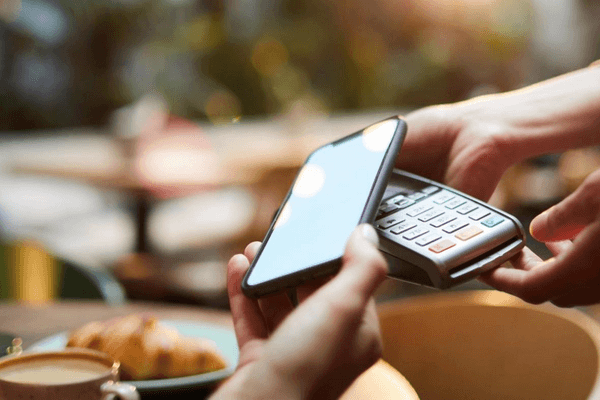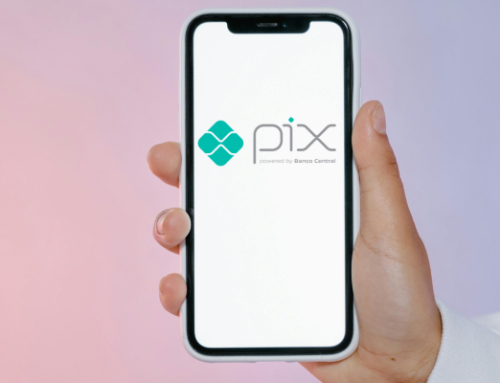
Technological development is inexorable and profoundly changes the way people buy and sell. We can see proof of this in the exponential growth of online shopping thanks to more advanced and interactive e-commerce platforms, which make the shopping experience simpler and faster, from the moment you enter a site until the consumer makes the payment.
Extremely important in simplifying the checkout (finalising the purchase with payment), the online payment methods are an open field for innovation, as evidenced by the systematic addition of new solutions to the means usually offered by specialised companies such as REDUNIQ. REDUNIQ offers those who sell online without a website the possibility of accepting payments with the MB Way digital wallet, and those who have a physical shop the possibility of accepting payments of this type in their shop. contactless terminalswith the Google Pay, Apple Pay and MB Way wallets.
The term "digital wallet" has definitely entered the lexicon of Portuguese consumers, but does everyone know what an e-wallet is, how it works and how they can accept transactions with these means of payment in their physical or online shop? That's what we're going to help you find out.
What is a digital wallet or e-wallet?
An e-wallet is an application that allows someone to store their bank card details and make payments using their mobile phone or computer.
There are e-wallet applications from various manufacturers and they can offer different functionalities, ranging from simple payment to complete maintenance of a virtual account.
How do digital wallets work?
By providing the physical card details (and granting access via the bank) to the e-wallet applications, the mobile phone becomes a kind of extension of the bank account, allowing the consumer to make payments and other transactions.
In some applications, you can even store more than one card, choosing one as the default but keeping the others available for when you need them.
In addition to this, it is also possible to "save" money, but for this the consumer will have to top up the balance of their digital wallet: they can do this by transfer via homebanking, or by credit or debit card.
Providing such sensitive data to an application, even if it is licensed to do so, may cause some concern, but there is no cause for alarm. Digital wallet applications have to pass a series of certifications when they are developed, in addition to offering sophisticated security and data encryption systems.
This means that it's not enough for a stranger to pick up their mobile phone to go shopping, since the e-wallet will be protected by a PIN, a password and, depending on the provider, they may even have a facial recognition and fingerprint system. There are even cases where you can set a maximum daily spending limit, just in case everything else fails.
How to create and use a digital wallet/e-wallet?
Creating a digital wallet in Portugal is quick and easy. All you need to do is install the app on your smartphone, enter your debit or credit card details and set the security codes.
As we'll see in the next point, the automatic payment terminals (TPAThe most recent ones already use NFC (Near Field Communication) technology, the same technology that allows you to make payments with a physical card without having to enter the pin.
As with a contactless card in a physical shop, the customer just has to hold their mobile phone close to the terminal until the validated payment sign appears. Another possibility is to pay by QR Code by pointing the mobile phone camera at the symbol on the terminal.
In the case of a online paymentThe customer just has to fill in the payment details in the app and authorise the transaction. In this case too, they usually have the option of scanning the QR Code on their smartphone to make the purchase.
How can you accept digital wallet or e-wallet payments in your physical and online shop?
As we mentioned in the previous point, in order for a digital wallet transaction to take place efficiently, your physical or online shop needs to be prepared to accept them. How? That's what we'll see next.
-
Accepting digital wallet payments in physical shops
For example, although Apple Pay is a simple and functional payment method, not all payment terminals are prepared to accept payments via this digital wallet.
Only the latest and most innovative POS terminals allow businesses to accept payments of this kind. This is the case with the Android automatic payment terminal REDUNIQ Smart which, in addition to accept payments with Apple Pay contactless with a card, chip or MB Way and Google Pay, it also includes a set of management apps that help businesses to sell more and allow them to be totally mobile and digital.
As we mentioned, payment is simple. Once the digital wallet has been installed, all the customer has to do is tap their mobile phone, even if it's locked, against a Contactless terminal from REDUNIQ and automatically request validation by Face ID or Touch ID recognition.
Face ID, as the name suggests, allows users to accept payments using facial recognition. They just have to look at the iPhone screen for it to recognise their faces.
The second validation option, Touch ID, works in practically the same way. Customers just need to place their finger on the iPhone's fingerprint reader (Touch ID) and the payment is successfully validated.
In addition to the greater speed and simplicity that businesses end up offering their customers, accepting payments of this type on the payment terminal is extremely secure, since when a customer makes a purchase in an establishment, for example, Apple Pay creates a specific number for the device and a unique transaction code. This way, the card number is never stored on the devices or on Apple's servers and is never shared with the merchant.
-
Accepting digital wallet payments in an online shop
As with the payment terminalsREDUNIQ has developed online payment solutions which allow online shops to make transactions using digital wallets, in this case MB Way.
The first of these solutions is REDUNIQ@Payments.
Aimed at online businesses such as restaurants, cafés or clothes shops, the REDUNIQ@Payments is a turnkey solution that allows you to receive payments by WhatsApp, e-mail and SMS, via Multibanco, Visa and Mastercard, by Multibanco reference or MB Way.
Simple and safe @Payments provides a platform, optimised for smartphones and tablets, where the business creates a link that can be sent by email, SMS or WhatsApp.
When the customer receives the link, all they have to do is click and they will be redirected to a secure REDUNIQ page, thus ensuring that the business does not have access to the card details at any stage of the payment.
The REDUNIQ E-Commerce The new system, which allows your online shop to accept online payments with Visa and Mastercard debit and credit cards from all over the world, by Multibanco and MB WAY reference through a simple integration process, will provide your business with better management of online sales made and guarantee the registration of the customer's card details (tokenisation) so that, in future purchases, the customer does not have to enter this information again, making the one click shopping trend a reality.
At the time of payment, the customer is directed to a REDUNIQ payment page where they have to enter their card details so that the issuing bank can validate them. Once validated, the money will be credited to your account in just two working days from the date of the transaction. Please note that you will never have access to the customer's bank details during the entire process.
This solution is also adapted to receive payments via the innovative UNIBANCO Account, a digital account which customers can use via a virtual card (a kind of virtual prepaid card) or physically via the Unibanco APP, and which allows them to receive and send money, make purchases online (or in person) and make payments anywhere in the world.
The virtual card can be topped up with a minimum of 10 euros and then used via the app to make cash withdrawals, payments for services and invoices by direct debit, P2P transfers (sending or requesting money from person to person via MB WAY) or credit transfers.


